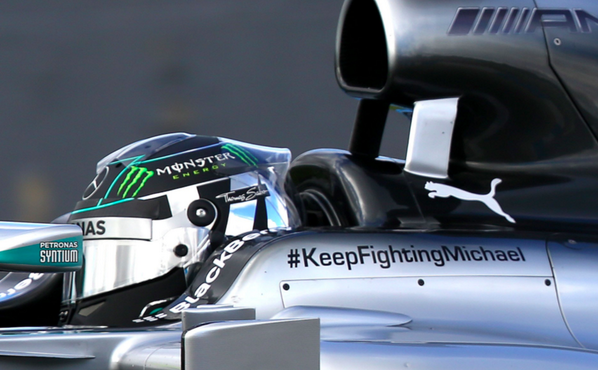This weekend Formula 1 welcomed in the new quieter noise of its hybrid engines, with Niko Rosberg winning an eventful Australian
GP. The results follows on from Mercedes' promise to be dominant this season.
Many pundits have long thought that Mercedes have made
the best use of the new regulations. This has been evident through pre-season
testing, and over the race weekend at Albert Park, Melbourne. Despite
qualifying first, bookies' favourite Lewis Hamilton suffered from an engine
failure from the start. He ended up retiring after just three laps.
Many fans of the sport will be relieved to see an end
of the dominance of Vettel, who retired from Sunday's race after just four
laps. This was most evident during qualifying on Saturday, when his failure to
make it into the final stage was met by cheers from the crowd.
Instead, Vettel's new Australian team mate Ricciardo, who made his debut for Red Bull this weekend, managed to achieve second place in the grid. However, he was later disqualified for consistent fuel-flow rate infringements. Red Bull plan to appeal the decision on the FIA.
Red Bull boss Christian Horner insisted that his team
complied with regulations, instead blaming the sensors. "These fuel-flow
sensors, which have been fitted by the FIA to measure fuel, have proved
problematic. Since their introduction, there have been discrepancies and the
sensors have been unreliable."
This was welcome news for McLaren, who were keen to
forget their bad season last year, which saw their drivers fail to get onto the
podium. The disqualification meant Magnussen was promoted to second in his
first F1 race, and Button up to third. This gives McLaren an early lead in the
Constructor's Championship.
The new season has seen the biggest set of regulation
changes for a decade in the sport. The move from the much-loved V8 engines, to
the slower hybrid engines, has been a controversial one. Many predicted the new
breed of cars would be unreliable and fuel management would play a big role.
In fact, this was not the case. The new cars are
starting to prove popular already, with them being visibly more difficult to
drive. Only eight cars retired during the race. Teams are also soon expected to
start considering going into races without the maximum 100kg of fuel allowed
onboard.
This is testament to how teams have been able to
produce and develop ground-breaking engineering quickly. Formula 1 is known for
adapting to new technologies, and innovating them. It is these new engines,
that run on fuel, and energy recovered from braking, which will be powering our
own cars in the near future.
However, fans are perhaps missing the loud, roaring
soundtrack of the old V8's most of all. The new power units are quieter, but
still manage to produce a gruff noise; one which is more reminiscent of console
racing games. They may not be to everyone's taste, but people will soon be used
to the new music.
As the German national anthem was played for Rosberg,
many fans turned their thoughts to Schumacher. Micheal still remains in a coma
after his skiing accident late last year, but in his honour, many cars carried
the tribute #KeepFightingSchumacher.






No comments:
Post a Comment